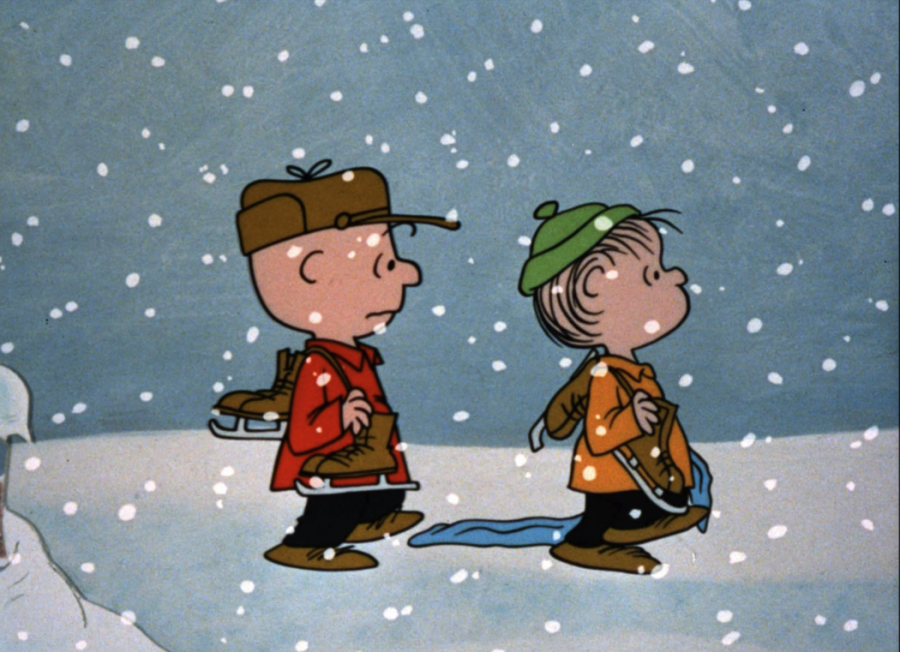Seasonal Depression: A Christmas Nightmare
Christmas: one word, a thousand different images. A word that prompts a vision in peoples head. A word that introduces a new but familiar world through the sound of ornaments clanking together as they sway on an evergreen, the smell of fresh snow and earth, the taste of gooey chocolate chip cookies, the sensation of joy. It prompts the ardor of being with loved ones, heads being thrown back in laughter.
What it probably does not prompt many people to think about, however, is mental health. Christmas is often sold as a happy, Hallmark-like fairytale but what people sometimes fail to consider is that there are two narratives to this widely-celebrated holiday. On one hand, in America schools are closed and students can enjoy time away from academic responsibilities with their family and friends. On the other hand, people are sometimes involuntarily surrounded by distant relatives and family friends with financial responsibilities and seasonal depression weighing down on them.
According to younggov.co only 19% of the population have felt lonely on Christmas and 24% depressed, making it statistically less than half of society that feels negatively. Because of this the spotlight has often only been shined on the better, more glittery parts of the holiday. Despite the goods outweighing the bad for the most part, for many, Christmas is a holiday with celebrations and traditions starting before they were even born; it’s been a part of their life practically their whole existence and is attached to more than enough memories. People like Art teacher, Stacy Bailey, see Christmas as somewhat of a hard, reminiscent time where they look back at their life, at how things have changed over time.
“I feel like the holidays are the hardest time of the year for a lot of people because the days are so packed with memories, so people who have mental health issues, I feel like it’s an extra hard time for us,” Bailey said. “I personally miss being a child with my grandparents on my dad’s side, the Bailey’s, like those were the best holidays. When they died, everything changed, and now, well, it’s never been the same. For me the holidays have shifted with death and that’s made it… harder.”
This is also the case for younger people who have to see their older loved ones go through the grief of not being with some of the people they love anymore, on a holiday they love. Senior, Paulina Alvarez, often feels sad for her grandma, who has lost many people in her life with time. Not getting to spend Christmas with people originally in her life is one of the most prominent reasons for sorrow during the holidays for Alvarez’s grandma, and in turn, a sad time for her.
“Earlier today my grandma told me that she gets really sad around Christmas because she misses her mom and her dad and all her old family, obviously like were her new family but she misses her parents and others,” said Alvarez.
Despite being melancholic for her grandma, Alvarez still enjoys Christmas by looking at it through other lenses. She looks forward to being able to spend time with her family from Mexico and carrying out both the usual and not-so-usual family traditions. Psychology teacher, Heather Willson, believes that Christmas is all about perspective and how people choose to view it.
“If you are a person who believes in those holidays and supports those holidays and are going to participate in those holidays, I think it does improve and assist with making you a happier, healthier person. If you’re a person who is like, ‘I celebrate Christmas, I believe it is Jesus Christ’s birth’ you’re going to love it. If you are not Christian, if you are not American and don’t believe in all the capitalism, you’re not going to understand it; you’re going to think it’s a waste. They’re going to get anything they want of it depending on their perspective,” Willson says.
Many students share Willson’s views on the topic. Freshman, Liberty King, experiences both sides of Christmas.
“Generally Christmas is supposed to be like a happy, joyous season but I relate it with anxiety because people are always stressing about money and what they’re going to get someone and obviously seasonal depression is a thing and they think about the cold, dark days and a lot of people get into a bad state of mind. So, it depends on how you look at it. It can be happy and joyful but it can also be very anxiety-inducing,” King said.
The good news is, less than half the population feel this way during the red, green, and silver adorned holidays. Most feel truly merry to get away from the realism of life and bask in the joys of Santa Claus and the sparkle he leaves behind.


